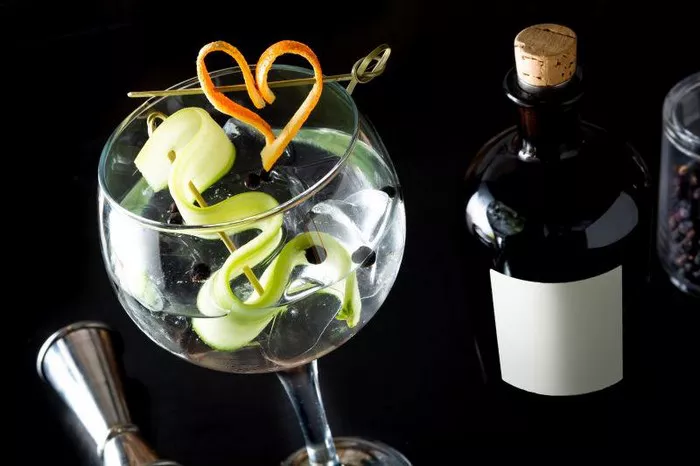When it comes to indulging in the world of mixology, understanding the fundamental types of cocktails is essential. Cocktails have been a cherished part of our social gatherings and relaxation rituals for centuries. In this article, we’ll dive into the intriguing universe of cocktails, exploring the 6 basic types that every enthusiast and aspiring bartender should know. From timeless classics to innovative concoctions, let’s embark on a flavorful journey that will elevate your cocktail knowledge to a whole new level.
1. The Martini: Classic Elegance
Dry Martini: This iconic cocktail features gin and vermouth, garnished with a green olive or lemon twist.
Dirty Martini: A twist on the classic, the dirty martini includes olive brine, giving it a savory, salty edge.
Gibson: Replace the olive with a pickled onion for a slightly different flavor profile.
2. The Margarita: Tangy and Refreshing
Classic Margarita: Combining tequila, lime juice, and orange liqueur, it’s a citrusy delight.
Frozen Margarita: Perfect for warm days, this variation is blended with ice for a slushy, refreshing treat.
Mango Margarita: Add a tropical twist with mango puree for a sweet and fruity kick.
3. The Mojito: A Taste of the Tropics
Traditional Mojito: This Cuban classic includes white rum, lime juice, sugar, mint leaves, and soda water.
Berry Mojito: Infuse your mojito with fresh berries for a burst of fruity goodness.
Coconut Mojito: Transport yourself to a beach paradise with the addition of coconut cream.
4. The Old Fashioned: Timeless and Refined
Classic Old Fashioned: Bourbon or rye whiskey, sugar, bitters, and a twist of orange peel – the original cocktail.
Maple Old Fashioned: Sweeten it up with a touch of maple syrup for a cozy twist.
Smoked Old Fashioned: Infuse a smoky flavor by briefly smoking the glass with wood chips before preparing.
5. The Negroni: Bitter and Bold
Classic Negroni: Gin, Campari, and vermouth in equal parts create a bitter, sophisticated cocktail.
Boulevardier: Swap gin for bourbon to make this Negroni variation.
White Negroni: Use Lillet Blanc instead of sweet vermouth for a lighter, herbal flavor.
6. The Pina Colada: A Tropical Escape
Classic Pina Colada: A delightful blend of rum, coconut cream, and pineapple juice, it’s a taste of the Caribbean.
Strawberry Pina Colada: Add fresh strawberries for a fruity twist.
Coconut Rum Pina Colada: Enhance the coconut flavor with coconut rum.
These are the 6 basic types of cocktails that form the foundation of mixology. As you explore these classics and their variations, you’ll discover the endless possibilities that cocktails offer. Whether you prefer the elegance of a Martini, the tropical vibes of a Pina Colada, or the boldness of a Negroni, there’s a cocktail to suit every taste.
Frequently Asked Questions (FAQs) About Cocktails
1. What is a cocktail?
A cocktail is a mixed drink typically made by combining various alcoholic and non-alcoholic ingredients to create a well-balanced and flavorful beverage.
2. What are the essential components of a cocktail?
A cocktail typically consists of a base spirit, a modifier or mixer, and flavorings. These components can vary depending on the specific cocktail recipe.
3. What is the most famous cocktail in the world?
The classic Martini is often regarded as one of the most famous cocktails globally. It’s known for its simplicity and sophistication.
4. What are some popular cocktail garnishes?
Common cocktail garnishes include citrus twists, maraschino cherries, olives, cocktail onions, and mint sprigs.
5. What’s the difference between a cocktail and a mocktail?
A cocktail contains alcohol, whereas a mocktail is a non-alcoholic beverage made with similar ingredients but without the alcohol.
6. What is the history of cocktails?
The history of cocktails dates back centuries, with origins in various cultures. The modern cocktail culture has roots in 19th-century America, with the emergence of classic cocktails like the Old Fashioned and Martini.
7. What are some classic cocktails everyone should try?
Classic cocktails worth trying include the Margarita, Mojito, Negroni, and Whiskey Sour, among others. These drinks showcase a variety of flavors and styles.
8. What’s the difference between shaken and stirred cocktails?
Shaking a cocktail typically results in a more diluted, frothy, and colder drink, while stirring creates a smoother, stronger, and clearer cocktail.
9. What is the secret to a perfectly balanced cocktail?
The secret to a well-balanced cocktail lies in achieving the right harmony of flavors. This often involves balancing sweetness, acidity, and bitterness while considering the spirit’s characteristics.
10. Are there any cocktail-making tools I should have at home?
Essential cocktail-making tools include a shaker, mixing glass, jigger for precise measurements, strainer, muddler, and a selection of glassware.
11. What are some non-alcoholic alternatives to classic cocktails?
Non-alcoholic versions of cocktails, or mocktails, can be created by substituting the alcoholic base with alternatives like sparkling water, fruit juices, or flavored syrups.
12. How can I learn more about cocktails and mixology?
You can expand your knowledge by attending mixology classes, reading books on the subject, following reputable cocktail blogs, or experimenting with different recipes at home.
13. What are some popular cocktails for different seasons and occasions?
Cocktails vary by season and occasion. For example, summer often calls for refreshing drinks like the Mojito, while winter may inspire warming cocktails like the Hot Toddy.


